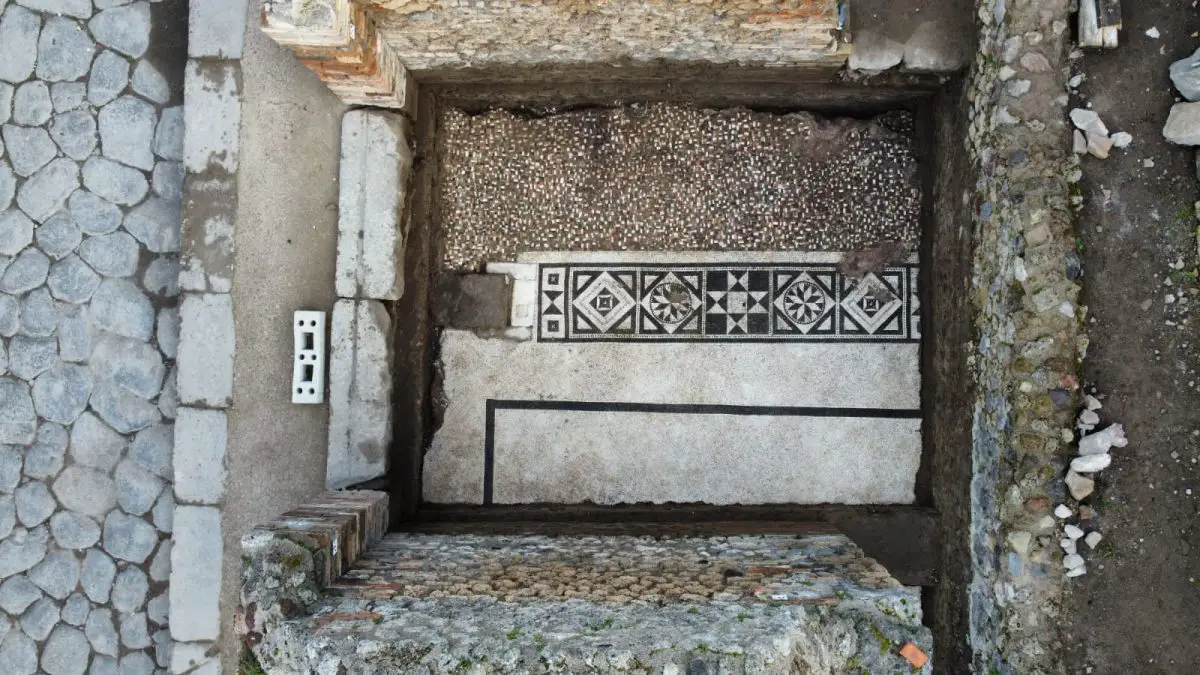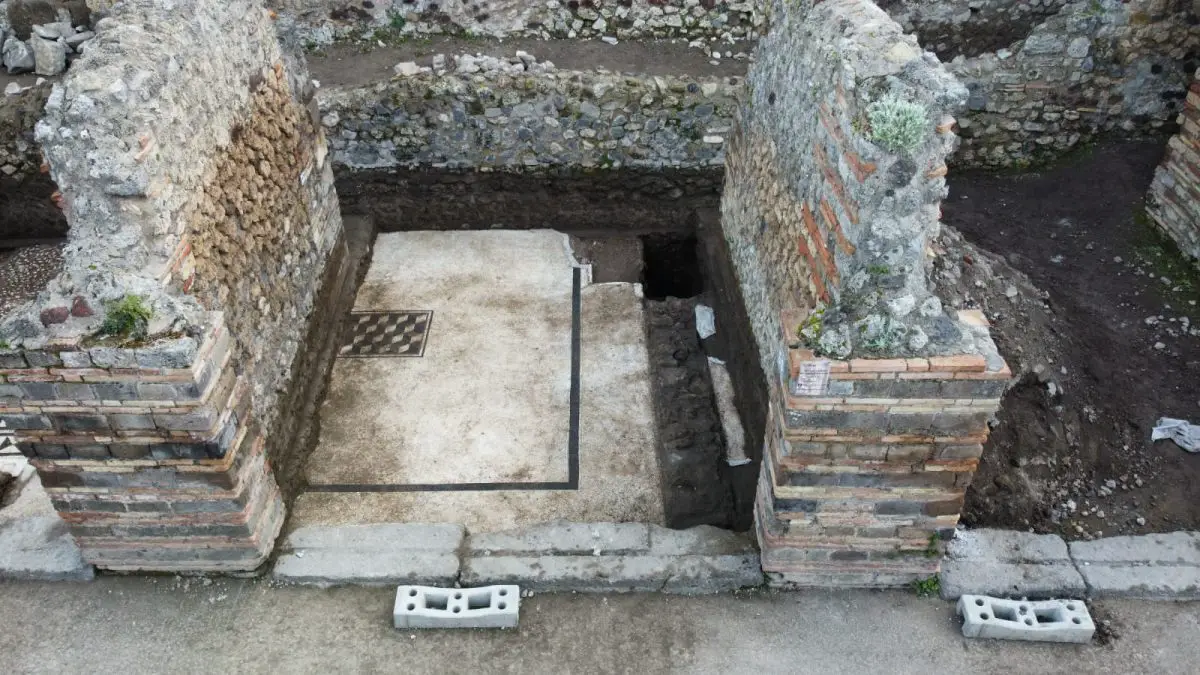Archaeologists have uncovered a area of mosaic flooring in Roman Pompeii that was deserted next the earthquake of Ad 62.
Pompeii was a Roman metropolis, located in the modern-day commune of Pompeii around Naples in the Campania location of Italy. Pompeii, alongside with the Roman city of Herculaneum were buried beneath 4 to 6 metres of volcanic ash and pumice for the duration of the eruption of Mount Vesuvius in Advertisement 79.
In Advert 62, the area was struck by an earthquake that had a magnitude of V to VI on the Mercalli scale. The utmost felt intensity is estimated to have been in the variety of IX to X, ensuing in extreme damage to properties in Pompeii and the surrounding region. A Bas-aid discovered in the lararium of the Property of Lucius Caecilius Iucundus depicts the events, exhibiting destruction to the town and Pompeii’s Temple of Jupiter.

Latest excavations involving archaeologists from the Archaeological Park of Pompeii, the Freie Universität Berlin, and the University of Naples L’Orientale, have disclosed a segment of mosaic flooring off the through dell’Abbondanza, the key street (decumanus maximus) which passed through the city.
The mosaic is element of the flooring of a domestic domus, where by the Stabian Baths would later on be made in the 2nd century Ad. The domus was flattened in the years adhering to the earthquake and the area was transformed for element of the tub elaborate and quite a few outlets.
The crew were excavating in the western section of the tub complicated in an area known as 3 tabernae, a corridor behind the natatio (swimming pool) the that qualified prospects onto the vicolo del Lupanare.

Below the Ad 79 floor level of the corridor, archaeologists uncovered the continues to be of a white mosaic bordered by a black band with a central polychrome emblem that includes a geometric pattern.
The pattern was made with black, white and environmentally friendly tesserae, bordered by a double red and black band which is a comparable layout to the opus sectile flooring of the cella of the temple of Apollo, the tablinum of the house of the Faun, and an exedra discovered in the residence of Triptolemus at Pompeii.
Gabriel Zuchtriegel, Director the project, explained: “Thanks to new investigation by the College of Berlin and the University of Naples, these days we can begin to rewrite the record of the block, inserting a further more chapter, that of a sumptuous domus with exceptional mosaics and spacious rooms, which occupied the western portion of the baths space until a couple of a long time ahead of the eruption in Advertisement 79.”
Header Impression Credit rating : Pompeii Websites
